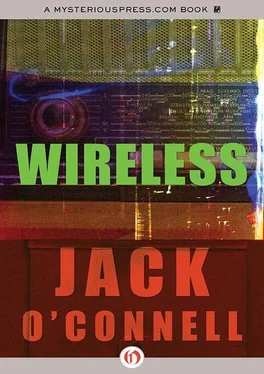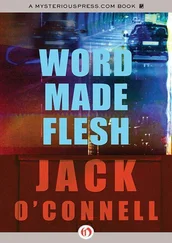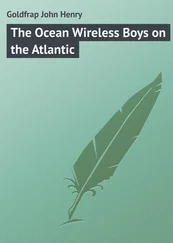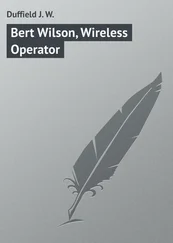I am down on my knees at those wireless knobs.
— Van Morrison
A good number of the old churches in Quinsigamond have found other uses. These big, dark houses of God have been turned into nightclubs and restaurants, a museum, a weight training salon, and these weird, upscale condos for the city’s nouveau riche Europhiles.
There was a big fad that peaked maybe five years back. Developers were grabbing the churches on the point of absolute decay, abandoned monsters whose parishioners had died out or moved on. For a while, every hustler with a real estate license was trying to find a way to target St. Brendan’s, Quinsigamond’s only cathedral. But the diocese held out, the bishop refused all offers. St. Brendan’s was still a legitimate parish, even if the bulk of its worshipers were outpatients from Toth Care Facility, tethered to their pews by a pocketful of lithium.
Now the market’s gone bad and more than one builder has filed Chapter 11. St. Brendan’s looks like it’s outlasted another trend. Speer sits in his car in the church lot and stares up at the structure. How could they want to desecrate such a thing?
To Speer, the cathedral is an architectural miracle with only one function — the singular glorification of the one true God. Whoever drafted the plans had to have been divinely inspired. This is the only explanation that makes sense, that offers a justification for the majesty that springs up from a common gravelly lot in the heart of downtown.
The church is almost a hundred and fifty years old, a monument to the tenacity of gray granite. It’s a traditional nave-and-transept setup, but its centerpiece is a square tower that rises up in stages of arched windows and concludes with castlelike buttresses at each corner. The tower gives the cathedral the look of a fortress, a bastion of strength that could hold off a lifetime of heresy.
Speer instinctively senses, but has no respect for, the irony of what’s happened to this church; the fact that this living artwork and testament to the possibilities of a honed Christian mind should become the stamping ground for the refuse of society. It sickens him these days when he watches the kinds of people who climb the granite stairs to make a visit. There are the dozens of street folk, the deinstitutionalized peasants who live in the alleys and cellar holes off Main Street. There are the drunks and addicts who fixate on some childhood, addlebrained idea of Christ. There are the last remnants of the old neighborhood, the elderly who never moved on and now haunt the cathedral with their walkers and canes. And there are the rapidly growing clans of immigrants, the majority illegal. Speer calls these people the mutants . He thinks they’re the product of some awful recessive gene that condemned certain countries to a continual backwardness. They are the bottom of the DNA barrel, but nature has seen fit to give them wild breeding abilities, and so they explode beyond their natural boundaries. Every time some petty despot seizes their homeland, they run to America to live the parasite’s dream.
They are Hispanic and Indian and, more and more often, any one of a variety of the Asian tribes — Laotian, Vietnamese, a slew of Cambodians. The federal and state governments help them buy the dilapidated tenements packed into the center of town, and then literally dozens move in, five to a bedroom, people sleeping on tables. They bring the aunts, the uncles, the cousins and in-laws over on the next freighter. They raise chickens in the kitchen cabinets and practice unspeakable religious rites on the back porch.
Except for the converts, the ones Father Todorov has gone to great pains to win over. This is what you want as the future of Catholicism , Speer thinks, and bites down on his back teeth. He finds the name Todorov particularly suspect. It sounds Russian and they’ve got their own very insular rite— Russian Orthodox, out of old Constantinople. Speer has read a book on the history of schism in the church. Splinters from the Rock , by an ex-Jesuit named Bloom. He couldn’t get a handle on where the author’s heart lay. But he does know that the modern toleration of heretical thought could be the end of the only true route to God.
There was Todorov just last week allowing a Lutheran minister onto the St. Brendan’s altar to read the gospel. A show of ecumenism. A display of understanding. And a two-column photo in the religion section of the Spy. Todorov has been pulling down more than his share of press lately. Last summer, when no one was looking and half the chancery was playing golf on Cape Cod, the good father starts up his own radio hour on QSG. The Word Made Flesh. His initial broadcast was exactly what Speer expected, an apologia for Liberation Theology and Marxist Clerics. But grudgingly, Speer had to acknowledge the man had classic radio skills, a natural heir to Fulton Sheen, not a trace of an accent, never a stammer or cough, and always building to commercial-time climaxes.
And now Fr. T’s latest crusade is the city’s mounting gang problem. He explained it on last week’s show as a “natural outgrowth of a morally reprehensible foreign policy.” Speer was glued to the radio, both disgusted and fascinated by the bizarre progression of the priest’s logic, his proposition that American support for “genocidal tyrants around the world” has “bred a violent mind-set” among the “global peasantry, the fellaheen .” The peasants seek sanctuary in our urban cesspools and “bind into the only form of security they’ve been allowed to know — the gang system, the tribal rite.”
Speer wonders— where did this guy learn to talk this way?
So now the priest tries to play big brother to the dozens of immigrant packs attempting to carve out a block or two for themselves in their new home. One day he’s down bringing donated food to the Haitian Tonton Loas. The next, it’s government cheese to the Castlebar Road Boys, drug-running IRA punks. In the meantime, all this street trash with their coded tattoos and colors are muling skag and doing drive-by clubhouse hits.
Speer thinks that throughout human history, more damage has been done by misguided men than by those with consciously heinous intent. He thinks that maybe the worst sin of all is the sin of confusion. He thinks that on their first day in the seminary, all novitiates should have a quote branded onto their chests, backward, like the ignorant cattle they are. Then each morning they could rise and look in the mirror and read the words that lie on the skin above their heart: I would not even believe in the Gospels were the Holy Church to forbid it — Francis Xavier .
Todorov clearly doesn’t see the danger of his actions. He views himself as a man with a mission, maybe a destiny to fulfill. The horror is that he’s giving these heathen scum some degree of credibility, making the public see them as a genuine collective, an organized force to be dealt with rather than a minor, excisable exception to the rules of order and progress.
Speer knows the gang boys in ways Fr. Todorov never will. He knows them as aberrations, throwbacks to the pack mind of wild dogs, dim-witted, overstimulated, unsure of what they need or want and striking wildly at whatever comes their way.
This is the kind of vile scum Todorov wants to bring into the Church.
To save.
Speer wants to place firm hands on the priest’s shoulders and explain slowly, “There is nothing to save. This is basic theology. Look at the faces. Look at the features. Animals. Beasts of the earth. And as such, they have no souls.”
Читать дальше












